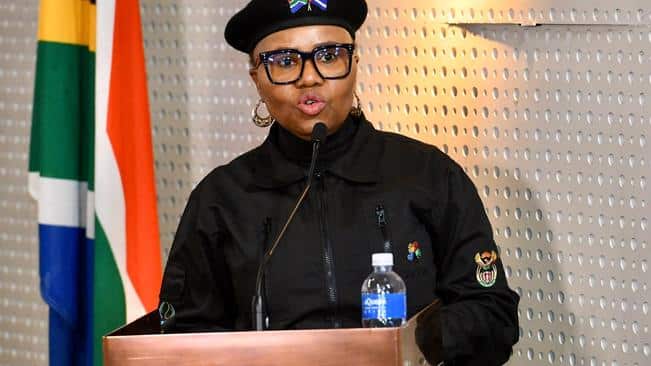Millions of South Africans who benefited from the R350 COVID-19 Social Relief of Distress Grant can breathe a sigh of relief as government has extended it for a further year until March 2023.
Delivering his State of the Nation Address on Thursday evening, the President highlighted that since the onset of COVID-19, the Social Relief of Distress Grant has provided support to more than 10 million unemployed people who were most vulnerable to the impact of the pandemic.
“Mindful of the proven benefits of the grant, we will extend the R350 SRD Grant for one further year, to the end of March 2023,” the President said.
Relaying the stories of some of the young people who benefitted from the grant, President Ramaphosa said that some people used the money to start businesses.
He told the story of Thando Makhubu from Soweto who received the R350 grant for seven months last year, and saved it to open an ice cream store that now employs four people.
Another story was that of Lindokuhle Msomi, an unemployed TV producer from KwaMashu Hostel, who saved the R350 grant he received for nine months to start a fast food stall and to support his family.
“As much as it has had a substantial impact, we must recognise that we face extreme fiscal constraints. A fiscal crisis would hurt the poor worst of all through the deterioration of the basic services on which they rely,” the President said.
During this time, the President said that government will engage in broad consultations and detailed technical work to identify the best options to replace this grant.
He emphasised that any future support must pass the test of affordability, and must not come at the expense of basic services or at the risk of unsustainable spending.
“It remains our ambition to establish a minimum level of support for those in greatest need,” the President said.
School infrastructure
Meanwhile, government is introducing an innovative social infrastructure delivery mechanism to address issues that afflict the delivery of school infrastructure.
The mechanism will address the speed, financing and funding, quality of delivery, mass employment and maintenance.
“The new delivery mechanism will introduce a Special Purpose Vehicle, working with prominent DFIs and the private sector, to deliver school education infrastructure,” President Ramaphosa said.
This approach is being piloted in schools in the Northern Cape and Eastern Cape. – SAnews.gov.za

